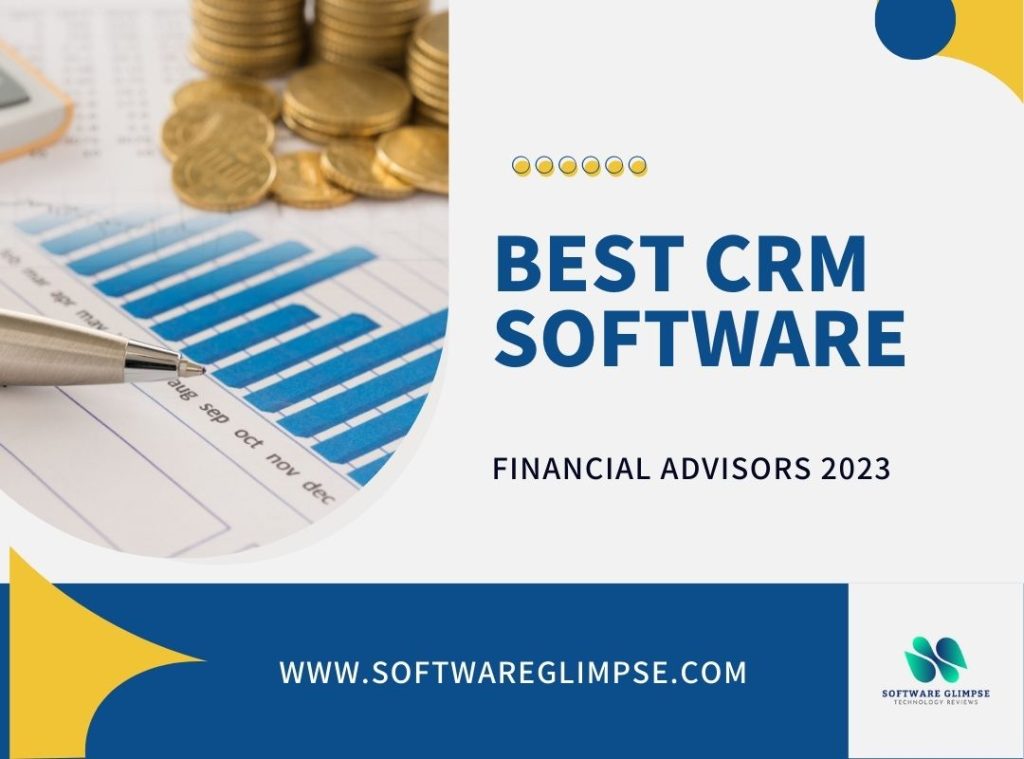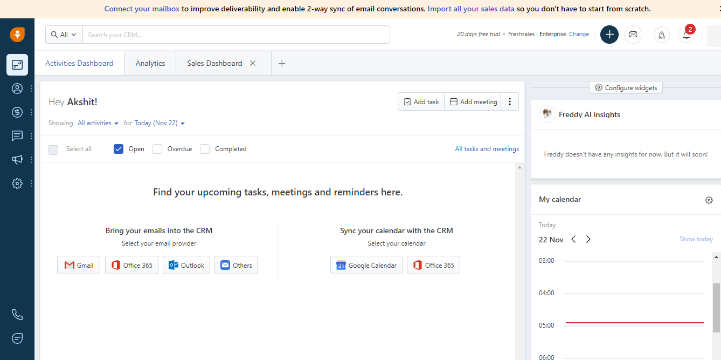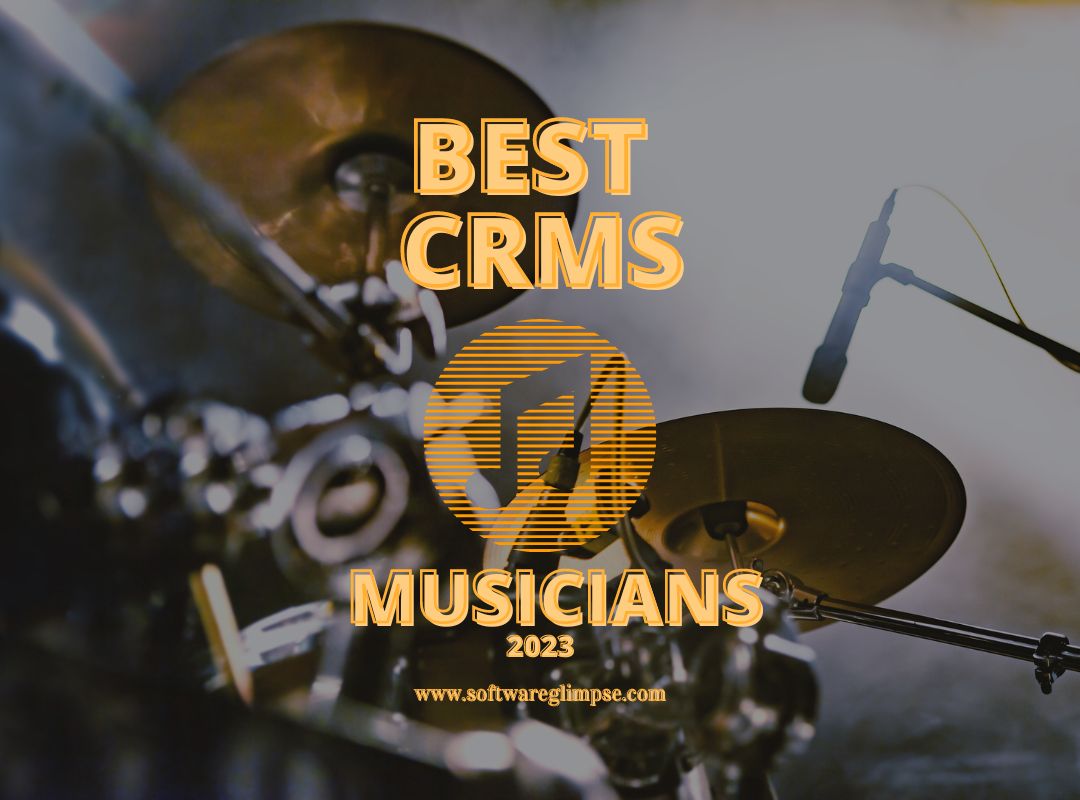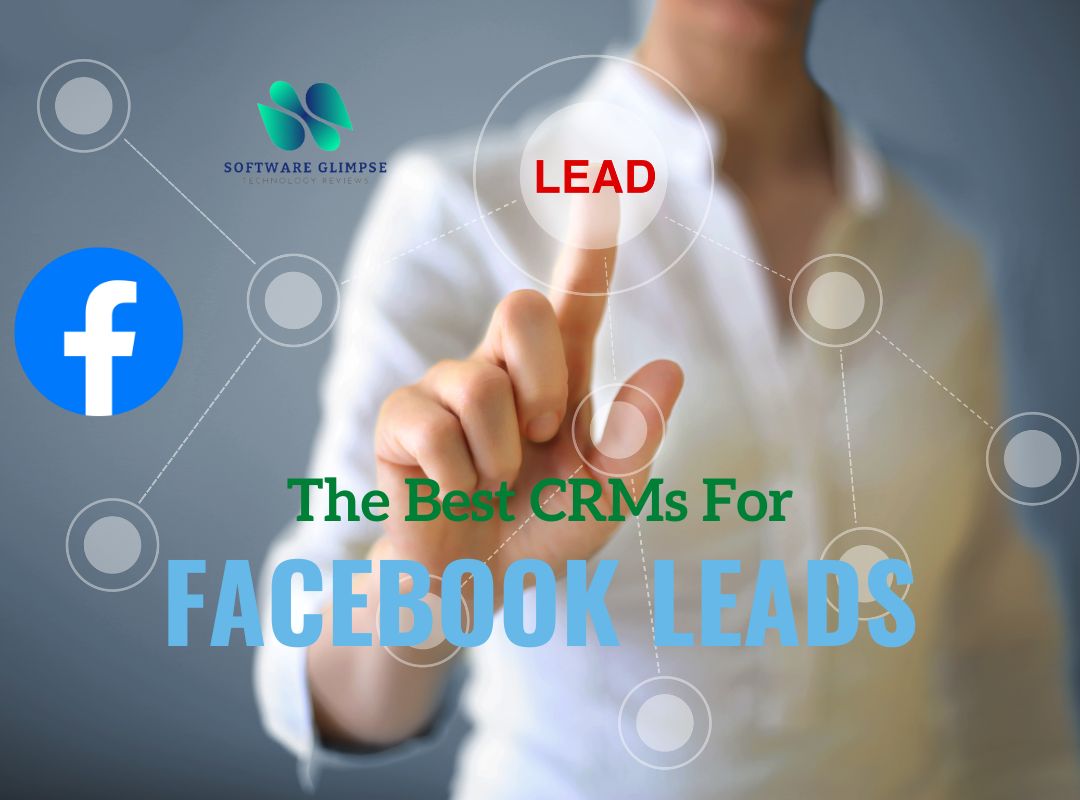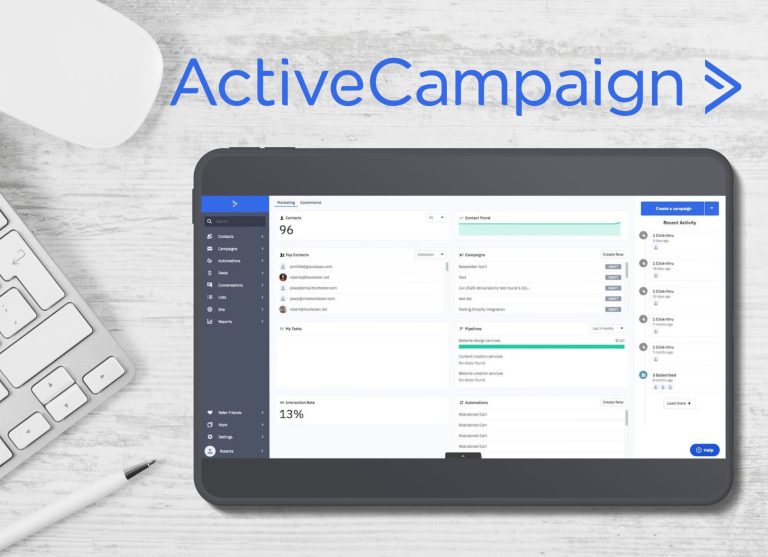Unlocking Your Music Empire: The Ultimate CRM Guide for Independent Musicians
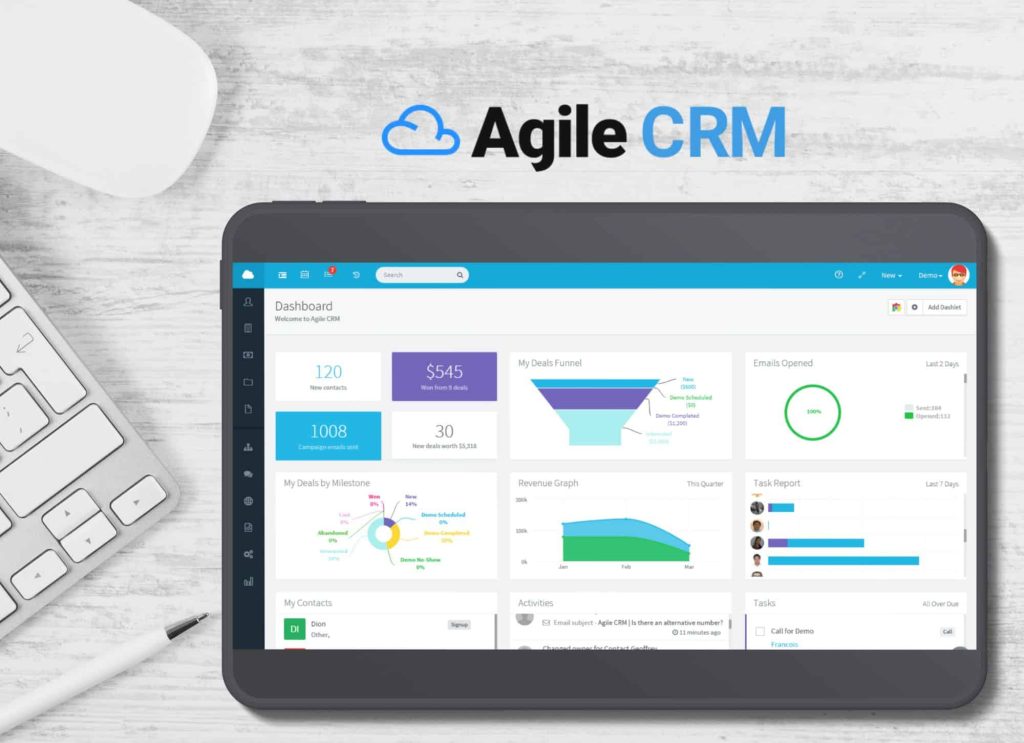
The Heartbeat of Your Music Career: Why a CRM is Essential
So, you’re a musician. You pour your heart and soul into crafting melodies, lyrics, and performances. You dream of packed venues, adoring fans, and a career that lets you live and breathe music. But let’s be honest, the music industry isn’t just about talent; it’s also a business. And like any business, it needs organization, efficiency, and a strong connection with its customers – your fans. That’s where a Customer Relationship Management (CRM) system comes in. Think of it as the central nervous system of your music career, helping you manage everything from fan interactions to gig bookings and merchandise sales.
For small musicians, the idea of a CRM might seem daunting. It might conjure images of complex software and corporate jargon. But trust me, it doesn’t have to be that way. A well-chosen CRM can be your best friend, helping you streamline your operations, build stronger relationships with your fans, and ultimately, grow your music empire. This guide will delve into the best CRM options specifically tailored for independent musicians, breaking down their features, benefits, and how they can transform your career.
What is a CRM, and Why Do You Need One?
Before we dive into specific CRM options, let’s clarify what a CRM actually *is*. At its core, a CRM is a software system that helps you manage your interactions with current and potential customers. In the music world, your “customers” are your fans, promoters, venues, and anyone else involved in your career.
Here’s a breakdown of what a CRM can do for you:
- Contact Management: Store and organize all your contacts in one place, including fan names, email addresses, phone numbers, social media profiles, and any other relevant information.
- Communication Tracking: Keep track of all your interactions with fans, promoters, and venues, including emails, calls, and social media messages.
- Fan Segmentation: Segment your fans based on their interests, location, or engagement level. This allows you to send targeted messages and offers.
- Marketing Automation: Automate repetitive tasks like sending newsletters, welcome emails, and follow-up messages.
- Sales Management: Manage your merchandise sales, ticket sales, and other revenue streams.
- Event Management: Organize and promote your gigs, concerts, and other events.
- Analytics and Reporting: Track your progress and measure the effectiveness of your marketing efforts.
In essence, a CRM gives you a 360-degree view of your fan base and your business operations. It allows you to personalize your interactions, build stronger relationships, and make data-driven decisions. For a small musician juggling multiple roles, a CRM can be a lifesaver, freeing up your time to focus on what you do best: creating music.
Key Features to Look for in a CRM for Musicians
Not all CRMs are created equal. When choosing a CRM for your music career, you need to consider features that are specifically relevant to the industry. Here are some key features to look for:
- Contact Management: This is the foundation of any CRM. Ensure the system allows you to store a comprehensive amount of information about your contacts, including custom fields for things like musical preferences, favorite songs, or concert attendance.
- Email Marketing Integration: Look for a CRM that integrates seamlessly with email marketing platforms like Mailchimp, ConvertKit, or Constant Contact. This allows you to easily send newsletters, announcements, and promotional emails to your fans.
- Social Media Integration: The ability to connect with your social media accounts is crucial. This allows you to monitor mentions, track engagement, and schedule posts directly from your CRM.
- Event Management: A good CRM should help you manage your gigs, concerts, and other events. Look for features like event calendars, ticketing integration, and RSVP tracking.
- Ticketing Integration: If you sell tickets directly through your website or other platforms, make sure the CRM integrates with those platforms to automatically track ticket sales and attendee information.
- Merchandise Management: Track your merchandise inventory, sales, and shipping. Some CRMs even integrate with e-commerce platforms like Shopify.
- Reporting and Analytics: Gain insights into your fan base, marketing performance, and sales data. Look for features like email open rates, click-through rates, and sales reports.
- Mobile Accessibility: The ability to access your CRM on the go is essential. Choose a CRM that has a mobile app or is optimized for mobile devices.
- Affordable Pricing: As a small musician, you’ll want a CRM that fits your budget. Look for options with free plans or affordable pricing tiers.
Top CRM Choices for Small Musicians
Now, let’s explore some of the best CRM options specifically designed or well-suited for independent musicians:
1. HubSpot CRM
Why it’s great: HubSpot CRM is a powerful and versatile CRM that offers a free plan with a robust set of features. It’s a great option for small musicians who are just starting out and need a comprehensive CRM without breaking the bank.
Key Features:
- Free forever plan with unlimited users and contacts
- Contact management, deal tracking, and task management
- Email marketing with templates and automation
- Live chat and chatbot functionality
- Integrations with other popular apps and platforms
Pros: Free plan is incredibly generous, user-friendly interface, excellent integrations, strong marketing automation features.
Cons: The free plan has limitations on the number of marketing emails you can send per month. More advanced features require paid plans.
Pricing: Free plan available. Paid plans start at a reasonable price.
2. Zoho CRM
Why it’s great: Zoho CRM is a well-established CRM platform known for its affordability and extensive feature set. It offers a free plan for a limited number of users and a range of paid plans to suit different needs.
Key Features:
- Contact management, lead management, and sales pipeline management
- Email marketing with automation and segmentation
- Social media integration and monitoring
- Workflow automation and customization
- Integrations with other Zoho apps and third-party platforms
Pros: Affordable pricing, wide range of features, highly customizable, good for sales and marketing automation.
Cons: The user interface can be a bit overwhelming for beginners. Some advanced features require paid plans.
Pricing: Free plan available for up to 3 users. Paid plans are affordable.
3. Pipedrive
Why it’s great: Pipedrive is a sales-focused CRM that’s known for its simplicity and ease of use. It’s a great option for musicians who want a CRM that helps them track and manage their sales and leads.
Key Features:
- Visual sales pipeline management
- Contact management and deal tracking
- Email integration and automation
- Activity tracking and reporting
- Integrations with other popular apps and platforms
Pros: User-friendly interface, excellent for sales pipeline management, strong reporting features.
Cons: Not as strong on marketing automation as some other CRMs. May be more sales-focused than some musicians need.
Pricing: Paid plans are competitively priced.
4. Agile CRM
Why it’s great: Agile CRM is a comprehensive CRM that offers a free plan and a range of features for sales, marketing, and customer service. It’s a good option for musicians who want a CRM that can handle all aspects of their business.
Key Features:
- Contact management, deal tracking, and task management
- Email marketing with automation and segmentation
- Social media integration and monitoring
- Help desk and live chat functionality
- Integrations with other popular apps and platforms
Pros: Free plan with a generous feature set, all-in-one solution for sales, marketing, and customer service.
Cons: The user interface can be a bit clunky. Some features are limited in the free plan.
Pricing: Free plan available. Paid plans are affordable.
5. Keap (formerly Infusionsoft)
Why it’s great: Keap is a powerful CRM and marketing automation platform designed for small businesses. It’s a good option for musicians who want to automate their marketing and sales processes.
Key Features:
- Contact management, lead management, and sales pipeline management
- Email marketing with advanced automation and segmentation
- Sales automation and appointment scheduling
- E-commerce integration
- Integrations with other popular apps and platforms
Pros: Powerful marketing automation features, excellent for sales and lead generation, good for e-commerce.
Cons: Can be expensive, steeper learning curve than some other CRMs.
Pricing: Paid plans.
6. Bandzoogle
Why it’s great: Bandzoogle is a website platform specifically designed for musicians, but it also includes built-in CRM features. It’s a great option for musicians who want an all-in-one solution for their website, email marketing, and fan management.
Key Features:
- Website builder with customizable templates
- Email marketing with automation and segmentation
- Fan database and contact management
- E-commerce integration for merchandise and music sales
- Event calendar and ticketing integration
Pros: All-in-one solution for website, email marketing, and fan management, easy to use, specifically designed for musicians.
Cons: CRM features are not as robust as dedicated CRM platforms. Limited customization options for website design.
Pricing: Paid plans.
7. MusicGlue
Why it’s great: MusicGlue is another platform specifically designed for musicians, offering a suite of tools for managing their website, merchandise, and fan relationships.
Key Features:
- Website builder with e-commerce capabilities
- Fan database and contact management
- Email marketing
- Ticketing and event management
- Merchandise management
Pros: All-in-one platform tailored for musicians, focusing on e-commerce and fan engagement.
Cons: Can be more expensive than some other options, CRM features are not as comprehensive as dedicated CRM platforms.
Pricing: Paid plans.
Choosing the Right CRM: A Step-by-Step Guide
Choosing the right CRM is a crucial decision. Here’s a step-by-step guide to help you find the perfect fit for your music career:
- Assess Your Needs: Before you start looking at CRMs, take some time to evaluate your current workflow and identify your pain points. What are you struggling with? What tasks are taking up too much of your time? What information do you need to track?
- Define Your Goals: What do you want to achieve with a CRM? Do you want to increase fan engagement, boost merchandise sales, or streamline your gig booking process? Defining your goals will help you prioritize features.
- List Your Must-Have Features: Based on your needs and goals, create a list of must-have features. This could include things like email marketing integration, social media integration, event management, and reporting and analytics.
- Research Different CRM Options: Explore the CRM options listed above and any others that catch your eye. Read reviews, compare features, and consider pricing.
- Try Free Trials or Free Plans: Most CRMs offer free trials or free plans. Take advantage of these opportunities to test out the software and see if it’s a good fit for your needs.
- Consider Integrations: Make sure the CRM integrates with the other tools you use, such as your email marketing platform, social media accounts, and e-commerce platform.
- Factor in Scalability: Choose a CRM that can grow with your career. As your fan base grows, you’ll need a CRM that can handle the increased volume of data and interactions.
- Prioritize User-Friendliness: Choose a CRM that’s easy to use and navigate. If the software is too complex, you won’t use it, and you won’t see the benefits.
- Read Reviews: See what other musicians are saying about the CRM options you’re considering. Read reviews on websites like G2 and Capterra.
- Make a Decision and Get Started: Once you’ve done your research and considered all the factors, make a decision and get started. Don’t be afraid to experiment and adjust your approach as you learn more about the software and your fans.
Maximizing Your CRM’s Potential: Tips and Tricks
Once you’ve chosen a CRM, it’s time to put it to work. Here are some tips and tricks to help you maximize its potential:
- Import Your Existing Contacts: Don’t start from scratch. Import your existing contact list from your email provider, social media accounts, and any other sources you have.
- Segment Your Audience: Divide your fans into different segments based on their interests, location, or engagement level. This will allow you to send targeted messages and offers.
- Personalize Your Communications: Use your CRM to personalize your emails, social media posts, and other communications. Address your fans by name and mention their favorite songs or artists.
- Automate Repetitive Tasks: Use your CRM to automate repetitive tasks like sending welcome emails, follow-up messages, and thank-you notes.
- Track Your Results: Monitor your email open rates, click-through rates, and other metrics to see what’s working and what’s not.
- Regularly Update Your Data: Keep your contact information up-to-date. Add new contacts as you acquire them, and update existing contacts with any new information.
- Use Your CRM to Promote Your Gigs: Send targeted emails to fans in the cities where you’re performing. Use your CRM to track ticket sales and RSVP responses.
- Offer Exclusive Content and Perks: Reward your loyal fans by offering exclusive content, such as early access to music, behind-the-scenes videos, or discounts on merchandise.
- Engage with Your Fans on Social Media: Use your CRM to monitor your social media mentions and engage with your fans. Respond to their comments and messages, and thank them for their support.
- Be Consistent: Make using your CRM a regular part of your workflow. The more you use it, the more value you’ll get from it.
The Future of Music and CRM: Staying Ahead of the Curve
The music industry is constantly evolving, and so is the technology used to support it. Here’s a glimpse into the future of CRM and how it will impact musicians:
- AI-Powered CRM: Artificial intelligence (AI) will play an increasingly important role in CRM. AI can be used to automate tasks, personalize communications, and provide insights into fan behavior.
- Integration with Emerging Technologies: CRMs will need to integrate with emerging technologies like virtual reality (VR), augmented reality (AR), and the metaverse to create immersive fan experiences.
- Enhanced Data Analytics: CRMs will provide more in-depth data analytics, allowing musicians to make data-driven decisions about their marketing, sales, and music creation.
- Focus on Fan Experience: The future of CRM will be centered around creating exceptional fan experiences. Musicians will use CRMs to build stronger relationships with their fans and provide them with personalized experiences.
- Increased Automation: Expect more automation in the future, freeing up musicians to focus on their art.
By staying informed about the latest trends in CRM and embracing new technologies, you can stay ahead of the curve and build a thriving music career in the years to come.
Conclusion: Your CRM – Your Music Empire’s Blueprint
In the competitive world of music, success isn’t just about talent; it’s about strategy, organization, and building meaningful relationships with your fans. A CRM system is the cornerstone of that strategy. It’s the blueprint for building your music empire, enabling you to manage your contacts, communicate effectively, market your music, and ultimately, connect with your audience on a deeper level.
Choosing the right CRM may seem like a challenge, but with the right research and a clear understanding of your needs, you can find a platform that empowers you to take control of your career. Consider the options we’ve explored, assess your own unique requirements, and start building your music empire today.
Remember, a well-utilized CRM isn’t just a piece of software; it’s an investment in your future, a tool that can help you turn your musical dreams into a reality. So, embrace the power of a CRM, and get ready to take your music career to the next level!

